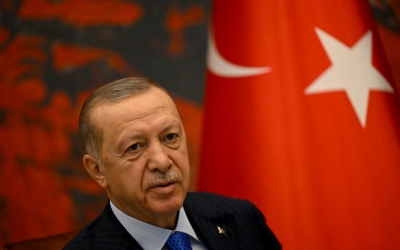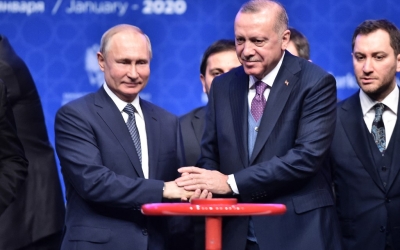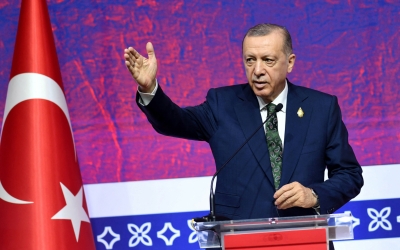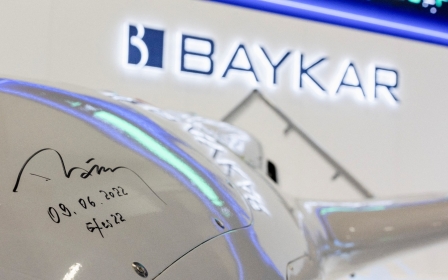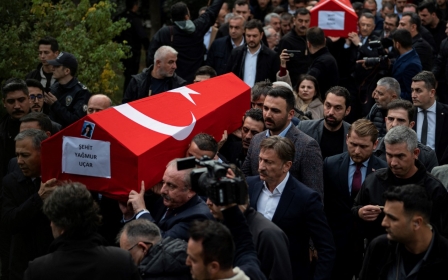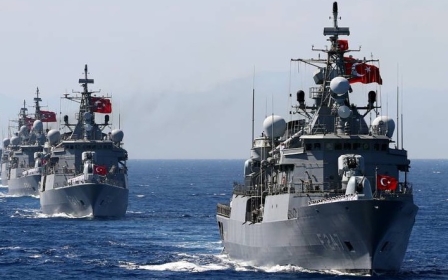Erdogan wants to annex Northern Cyprus, top US senator says
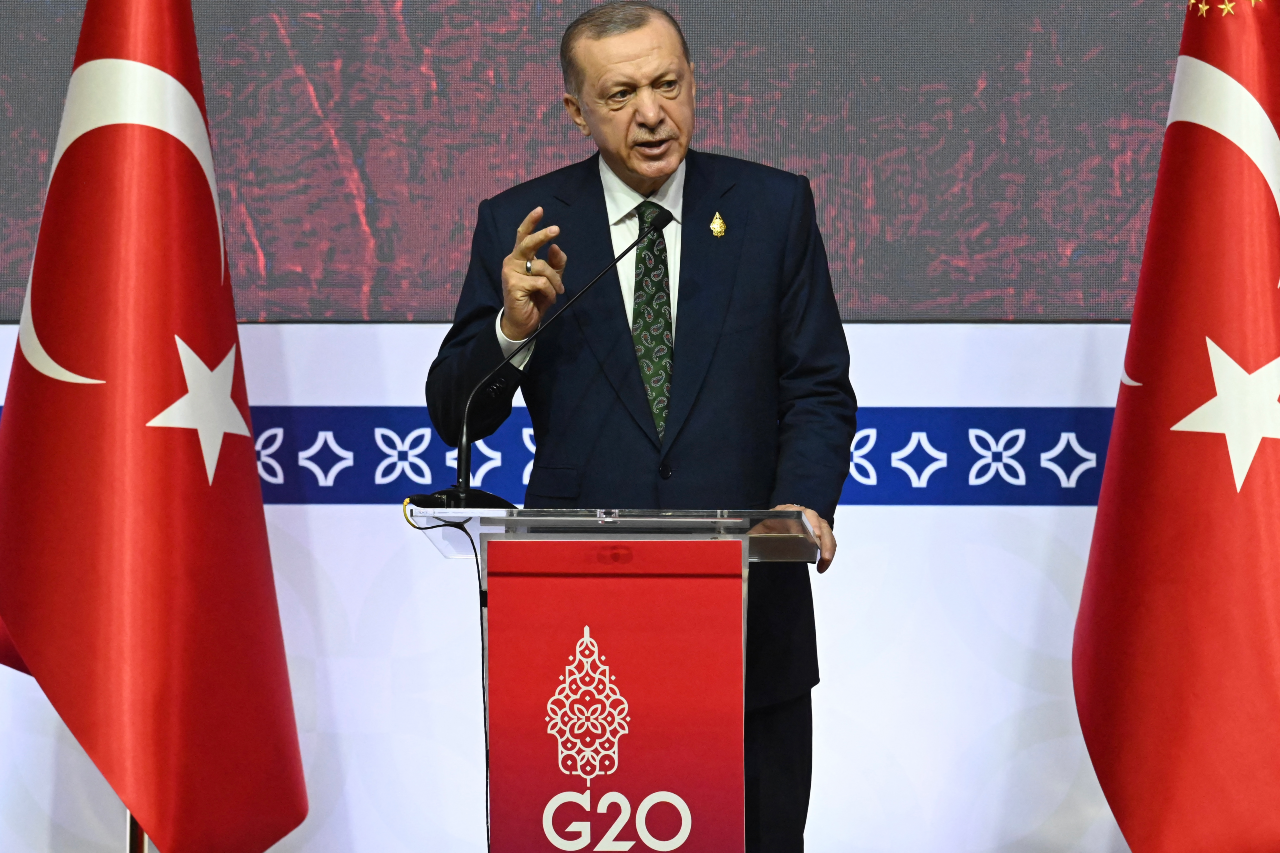
The top US senator on the Foreign Relations Committee blasted Turkish President Recep Tayyip Erdogan for working with “brutal dictators” and vowed to block arms sales to Ankara after the Turkish leader said he was assured by US President Joe Biden F-16 sales would proceed.
“I will not approve the sale of any F-16 to Turkey until it stops its campaign of provocations in the wider region,” Democratic Senator Robert Menendez said Wednesday, at an online event marking the anniversary of Turkish Cypriot declarations of an independent state, in the northern part of divided Cyprus.
“The threat of the occupied area is one that has to be taken very seriously. The US should not put any F-16 fighter jets in President Erdogan’s hands," he added.
Turkey invaded Cyprus in 1974 after a failed coup attempted to unite the island with Greece. Since then, Cyprus has been divided between the internationally recognised Republic of Cyprus in the South and the Turkish republic, recognised only by Ankara.
Menendez, a noted critic of Erdogan, drew a parallel to the Cyprus issue and the war in Ukraine.
“Erdogan sees the illegal annexation of part of Ukraine and takes note. Because he wants to do the same in northern Cyprus and annex the occupied territories," he said.
In September, Erdogan said he would increase troop numbers in Northern Cyprus after the US fully lifted its arms embargo on the ethnically divided island. Turkey maintains about 40,000 troops in the north.
'F-16s at hand'
The Eastern Mediterranean has emerged as a flashpoint in the sale of US F-16s to Turkey. In September, Erdogan made a veiled threat against neighbouring Greece, with Athens warning the region could erupt into a Ukraine-style war.
Ties between Greece and the US have strengthened in recent years, while those with Turkey have frayed.
Turkey’s arms industry was sanctioned by the US in 2020 after it acquired the Russian S-400 missile defence system. Several US lawmakers have also opposed Turkey’s military forays in Syria, the Caucuses, and Libya.
In an interview with reporters on his way back from the G-20 summit in Bali, Erdogan said Biden had told him the F-16 purchase was "in his hands”.
A White House readout of the meeting didn’t mention arms sales, but the Biden administration has indicated backing for the sale of F-16 fighter jets and airforce modernisation kits to its Nato ally.
In a letter to Congress in June, the Department of Defence said that the US "fully supports" Turkey's efforts to modernise its air force, seeing the move as “a contribution to Nato security and therefore American security”.
Biden gave his clearest support to the sale at a Nato conference in Madrid in July saying: “We (the US) should sell [Turkey] the F-16 jets and modernise those jets as well. It’s not in our interest not to do that.”
'Nato not a shield'
Earlier this month, Erdogan said that Turkey's effort to purchase F-16 jets would be "much easier" if Republicans won control of the US Senate, an apparent nod to Menendez’s oversight of any sale.
“If the Republicans claim the few seats they need in the Senate, things will be much easier for us,” Erdogan said.
While Republicans gained control of the House of Representatives, Democrats held their Senate majority. Recent developments, however, indicate broader bipartisan opposition to arms sales to Turkey.
On Wednesday, a bipartisan group of 22 lawmakers urged their colleagues in Congress to maintain a provision in the final draft of America’s defence spending bill, conditioning the sale of F-16 fighter jets and upgrade kits to Turkey on the US verifying they are not used for illegal territorial overflights of neighbouring Greece.
“Turkey’s membership in NATO cannot and should not shield the Erdogan government from being held responsible for its behavior by US policymakers,” the letter said.
Turkey has leveraged its position in Nato and its role in the Ukraine war to advance foreign policy priorities. Besides supplying armed drones to Ukraine, Erdogan has emerged as one of the few Nato leaders to maintain a channel of communication with Russian President Vladimir Putin.
Turkey's mediator status was underscored Monday when CIA Director William Burns met with his Russian counterpart in the Turkish capital, Ankara, to warn Moscow against the potential use of any nuclear weapons in Ukraine.
Turkey also helped broker a UN-backed deal between Ukraine and Russia in July to allow for the export of grain from Black Sea ports. At the same time, President Erdogan has sought to expand economic ties with Moscow.
Middle East Eye delivers independent and unrivalled coverage and analysis of the Middle East, North Africa and beyond. To learn more about republishing this content and the associated fees, please fill out this form. More about MEE can be found here.


